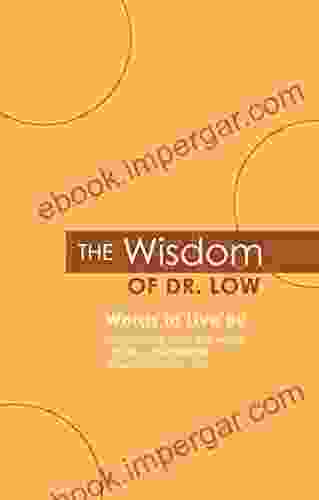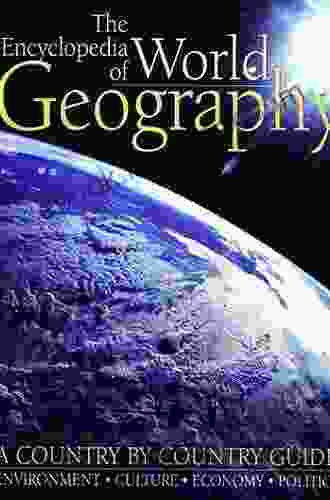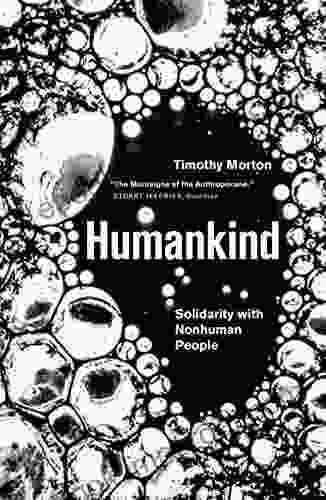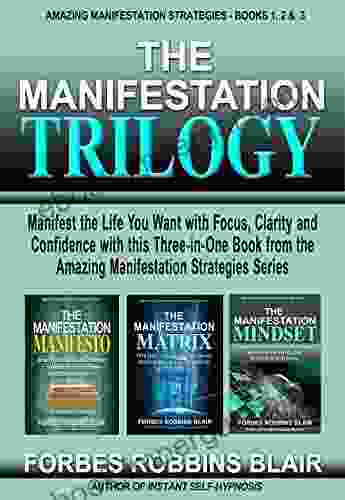Modern Conflict in the Greater Middle East

The Greater Middle East, a region encompassing North Africa, the Middle East, and Central Asia, has been a crucible of conflict and instability for centuries. In recent decades, the region has witnessed a surge in violence and upheaval, fueled by a complex interplay of historical, political, and social factors. This comprehensive analysis delves into the intricate web of modern conflict in the Greater Middle East, exploring its roots, manifestations, and potential implications for the future.
5 out of 5
| Language | : | English |
| File size | : | 4858 KB |
| Text-to-Speech | : | Enabled |
| Screen Reader | : | Supported |
| Enhanced typesetting | : | Enabled |
| Word Wise | : | Enabled |
| Print length | : | 440 pages |
Historical Roots
The history of conflict in the Greater Middle East is long and complex, dating back to ancient times. The region has been a crossroads of civilizations and empires, each leaving its mark on the political and cultural landscape. However, several key historical events have shaped the current conflict dynamics:
- Ottoman Empire Collapse: The collapse of the Ottoman Empire after World War I led to the redrawing of regional boundaries and the creation of new nation-states. This process sowed the seeds of conflict, as many newly established states struggled with issues of identity, legitimacy, and territorial disputes.
- European Colonialism: European colonial powers, such as France and Britain, had a profound impact on the region. They imposed their own political and economic systems, often exacerbating tensions between different ethnic and religious groups.
- Cold War Rivalries: During the Cold War, the Greater Middle East became a battleground for ideological conflict between the United States and the Soviet Union. This led to the rise of proxy wars and the arming of various factions, further fueling regional instability.
Political Dynamics
The political landscape of the Greater Middle East is characterized by a diverse mix of governments, including autocracies, monarchies, and democracies. Many countries have experienced political unrest and regime changes in recent years, as popular movements challenge authoritarian rule and demand greater freedoms.
Sectarianism and ethnic divisions play a significant role in political conflicts. Religious minorities, such as Shi'a and Sunni Muslims, have often faced discrimination and persecution. Ethnic tensions between different groups, such as Arabs, Kurds, and Persians, have also contributed to instability.
Foreign intervention has also shaped the region's political dynamics. Western powers, such as the United States and its allies, have pursued military interventions and covert operations in the Middle East, with varying degrees of success. These interventions have often had unintended consequences, including the rise of extremist groups.
Social Factors
Social and economic factors have also played a critical role in shaping conflict in the Greater Middle East. Rapid population growth, urbanization, and youth unemployment have created a fertile ground for social unrest and radicalization.
Poverty and inequality are prevalent in many countries in the region. Disparities in wealth and opportunities have fueled resentment and frustration among marginalized communities, making them more susceptible to recruitment by extremist groups.
Access to education and healthcare is also uneven across the region. Limited opportunities for education and employment have left many young people feeling disillusioned and disconnected from mainstream society.
Manifestations of Conflict
Modern conflict in the Greater Middle East manifests itself in a variety of forms, including:
- Civil Wars: Protracted civil wars have raged in several countries, such as Iraq, Syria, and Yemen, often driven by sectarian and ethnic divides.
- Terrorism: Terrorist groups, such as Al-Qaeda and ISIS, have carried out numerous attacks in the region and beyond, targeting civilians, security forces, and infrastructure.
- Proxy Wars: Regional powers, such as Iran and Saudi Arabia, have engaged in proxy wars by supporting different factions in conflicts in other countries.
- Insurgencies: Insurgent groups have emerged in various countries, challenging the authority of established governments.
Regional and Global Implications
The conflicts in the Greater Middle East have had far-reaching regional and global implications:
- Humanitarian Crisis: Millions of people have been displaced from their homes, creating a massive humanitarian crisis. Neighboring countries and the international community are struggling to cope with the influx of refugees.
- Security Threats: The conflicts in the Middle East have become a breeding ground for extremist groups, posing a security threat to regional and global stability.
- Economic Disruptions: The conflicts have disrupted trade and investment, leading to economic losses and exacerbating poverty.
- Geopolitical Tensions: The competing interests of regional and international powers have heightened geopolitical tensions in the Middle East, increasing the risk of further escalation.
Pathways to Resolution
Resolving the conflicts in the Greater Middle East is a complex and multifaceted challenge. However, several key pathways to resolution have been identified:
- Political Reforms: Implementing political reforms that promote inclusivity, accountability, and human rights can address grievances and reduce the likelihood of conflict.
- Economic Development: Creating economic opportunities and reducing inequalities can provide marginalized communities with a stake in the future and deter them from joining extremist groups.
- Education and Dialogue: Promoting education and fostering interfaith dialogue can counter extremist ideologies and promote tolerance.
- Regional Cooperation: Encouraging regional cooperation and fostering diplomatic solutions can help resolve conflicts peacefully and prevent future escalation.
- International Cooperation: The international community can play a vital role in facilitating peace processes, providing humanitarian assistance, and coordinating efforts to combat terrorism.
Modern conflict in the Greater Middle East is a complex and multi-faceted issue with deep historical roots and far-reaching implications. Understanding the interplay of political, social, and economic factors that fuel conflict is essential for developing effective strategies for resolution. By promoting political reforms, economic development, education, and dialogue, we can strive to create a more stable and peaceful future for the region.
This comprehensive analysis provides a valuable resource for scholars, policymakers, and anyone seeking a deeper understanding of the complexities of modern conflict in the Greater Middle East. By shedding light on the challenges and potential pathways to resolution, we can contribute to a more informed and nuanced dialogue on this critical issue.
5 out of 5
| Language | : | English |
| File size | : | 4858 KB |
| Text-to-Speech | : | Enabled |
| Screen Reader | : | Supported |
| Enhanced typesetting | : | Enabled |
| Word Wise | : | Enabled |
| Print length | : | 440 pages |
Do you want to contribute by writing guest posts on this blog?
Please contact us and send us a resume of previous articles that you have written.
 Book
Book Novel
Novel Page
Page Chapter
Chapter Text
Text Story
Story Genre
Genre Reader
Reader Library
Library Paperback
Paperback E-book
E-book Magazine
Magazine Newspaper
Newspaper Paragraph
Paragraph Sentence
Sentence Bookmark
Bookmark Shelf
Shelf Glossary
Glossary Bibliography
Bibliography Foreword
Foreword Preface
Preface Synopsis
Synopsis Annotation
Annotation Footnote
Footnote Manuscript
Manuscript Scroll
Scroll Codex
Codex Tome
Tome Bestseller
Bestseller Classics
Classics Library card
Library card Narrative
Narrative Biography
Biography Autobiography
Autobiography Memoir
Memoir Reference
Reference Encyclopedia
Encyclopedia Kevin O Leslie
Kevin O Leslie Kenneth Kobre
Kenneth Kobre Khiara M Bridges
Khiara M Bridges Kim Zimmer
Kim Zimmer Kevin Williamson
Kevin Williamson Kenneth Mcentee
Kenneth Mcentee Kenneth R Stunkel
Kenneth R Stunkel Ken Ilgunas
Ken Ilgunas Ken Wharfe
Ken Wharfe Kent David Kelly
Kent David Kelly Kenneth C Kinghorn
Kenneth C Kinghorn Kevin Mccloud
Kevin Mccloud Kenneth Atchity
Kenneth Atchity Kevin Conner
Kevin Conner Kenji Jasper
Kenji Jasper Kenneth Gottfried
Kenneth Gottfried Kenneth H Kolb
Kenneth H Kolb Kerri Hummingbird Sami
Kerri Hummingbird Sami Kimberly Luse
Kimberly Luse Kim Cooper
Kim Cooper
Light bulbAdvertise smarter! Our strategic ad space ensures maximum exposure. Reserve your spot today!

 Tennessee WilliamsUnleash Your Potential: The 21st Century Blueprint for Holistic Well-being
Tennessee WilliamsUnleash Your Potential: The 21st Century Blueprint for Holistic Well-being Samuel Taylor ColeridgeFollow ·18.7k
Samuel Taylor ColeridgeFollow ·18.7k Gabriel MistralFollow ·8k
Gabriel MistralFollow ·8k Neal WardFollow ·12k
Neal WardFollow ·12k DeShawn PowellFollow ·9.7k
DeShawn PowellFollow ·9.7k Alan TurnerFollow ·7k
Alan TurnerFollow ·7k Carl WalkerFollow ·10.2k
Carl WalkerFollow ·10.2k Dawson ReedFollow ·8.5k
Dawson ReedFollow ·8.5k Allan JamesFollow ·17.2k
Allan JamesFollow ·17.2k

 Chadwick Powell
Chadwick PowellDiscover the Secrets of Optimal Health with "The Healthy...
Preface: Embark on a Transformative...

 Andres Carter
Andres CarterUnveiling the Profound Journey of Womanhood: A Daughter's...
In the tapestry of...

 Travis Foster
Travis FosterWords to Live By: The Essential Guide to Finding...
Words have the power to shape our...

 Chinua Achebe
Chinua AchebeThe Ultimate Guide for Men to Recover from a Breakup
: Breakups are never...

 Spencer Powell
Spencer PowellNew Mindset, New Results: The Proven Path to Unleashing...
About the Book ...
5 out of 5
| Language | : | English |
| File size | : | 4858 KB |
| Text-to-Speech | : | Enabled |
| Screen Reader | : | Supported |
| Enhanced typesetting | : | Enabled |
| Word Wise | : | Enabled |
| Print length | : | 440 pages |












